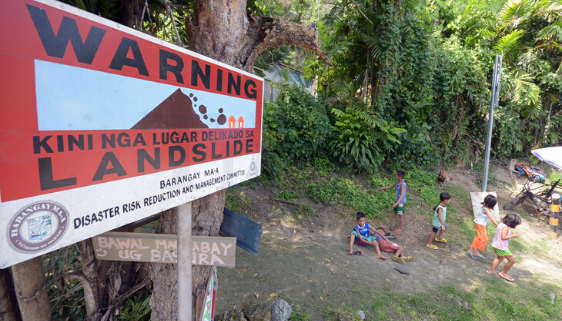MORE THAN 7 in 10 Davaoeños believe their respective barangays are either moderately or well-prepared in times of disaster, the latest survey from the University of Mindanao-Institute of Popular Opinion (UM-IPO) revealed.
When asked whether their respective barangays are prepared for any disasters, 5 of 10 (52.1%) assessed their communities as moderately prepared. Meanwhile, 2 of 10 (21%) assessed their barangay’s preparedness as either well prepared to very well prepared. They were further asked what government support was extended during those challenging times.
Meanwhile, 4 of 10 Davaoeños (41.2%) found Davao City as well prepared in terms of disaster preparedness and 3 of 10 (35.2%) rated the city as moderately prepared.
When asked how the city government itself performed during these disasters, results revealed the following: 3 of 4 Davaoeños (75.6%) rated the government’s disaster management team between satisfied to very satisfied in terms of public information services; about 3 of 4 Davaoeños (68.1%) rated the government’s disaster management team between satisfied to very satisfied in terms of evacuation plan; about 3 of 4 Davaoeños (66.4%) rated the government’s disaster management team between satisfied to very satisfied in terms of organized relief operations; about 3 of 4 Davaoeños (68.1%) rated the government’s disaster management team between satisfied to very satisfied in terms of health services; 3 of 4 Davaoeños (66.4%) rated the government’s disaster management team between satisfied to very satisfied in terms of law enforcement; and 3 of 4 Davaoeños (63.9%) rated the government’s disaster management team between satisfied to very satisfied in terms of post-disaster services.
On whether respondents have experienced any disaster or calamity firsthand, 5 of 10 Davaoeños (50%) reported that they have experienced it just recently while 1 of 5 Davaoeños (21%) reported that they have experienced it between a year to five years ago. Asking what disaster/s they experienced, 1 of 3 Davaoeños (37.6%) experienced flooding only, and 1 of 3 (37.8%) experienced earthquakes and tremors.
Generally, 95.6% or more than 9 of 10 Davaoeños reported that they experienced either single but recurring or multiple disasters like flashfloods, earthquakes, landslides, and fires while a very small fraction (4.4%) reported they have not experienced any of these disasters so far.
When Davaoeños were asked about the kind of support they need to recover after an experienced disaster, more than 1 of 3 Davaoeños (37%) reported that they expect a combination of mental health services to traumatized victims, knowledge about available resources to help recover losses, livelihood program, and more effective disaster mitigation plan for the barangay.
The UM-IPO conducted a survey from Jan. 25 to Feb. 10, 2024, to determine Davaoeños’ readiness and experiences with disasters and calamities and their satisfaction with the disaster response and related services performed and extended by the City Government of Davao.
The survey is anent to continuous disasters, such as earthquakes, flooding, and landslides experienced by Davaoeños in the last year. The survey targeted 1,200 households from the three political districts in Davao City based on scientific predefined inclusion and exclusion criteria. Sampling was set at a 95% confidence level and 2.5% margin of error, wherein a total of 1,190 respondents were found valid for analysis.
The majority of the qualitative responses included a combination of evacuation services, food relief services, and health support services, with some barangays initiating assistance to financial claims and post-disaster recovery.
During the interview, prevailing support expected that they received to make them prepared during disasters included a combination of coordination with organized evacuation efforts, integration with disaster response services such as local offices for emergencies, first responders, and law enforcement agencies, and coordination with disaster response organizations, wherein more than 5 of 10 (52.9%) have experienced or availed of these supports.

